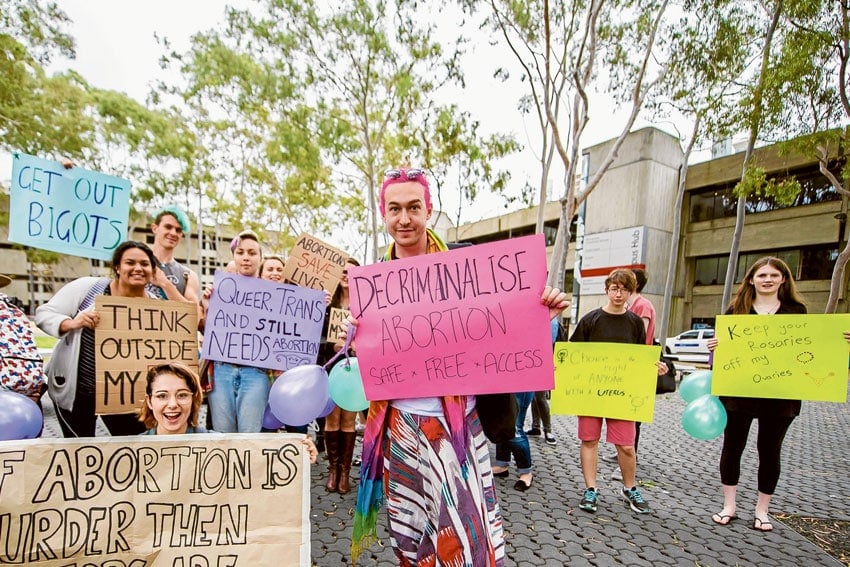
You’re in your final year of secondary school and excitedly examining your options for university courses next year. You have a passion for English Literature or History and want to get the best grounding possible in your favourite subject at the tertiary level.
However, you’ve heard numerous stories of university faculties awash with political correctness and left-wing ideology—feminism, Queer theory, Critical theory—blatantly pushed onto students.
So what should you do?
Don’t despair. While the overall picture is certainly not rosy, there are still some great options for studying the humanities at the tertiary level in Australia. You just have to know what they are, according to some of the top experts and commentators on education in Australia.
Professor Tracey Rowland, St John Paul II Chair of Theology at Notre Dame University, says it’s primarily a matter of doing your homework.
“I think there are outstanding individual educators in Australia but they’re quality without quantity,” Professor Rowland told The Catholic Weekly.
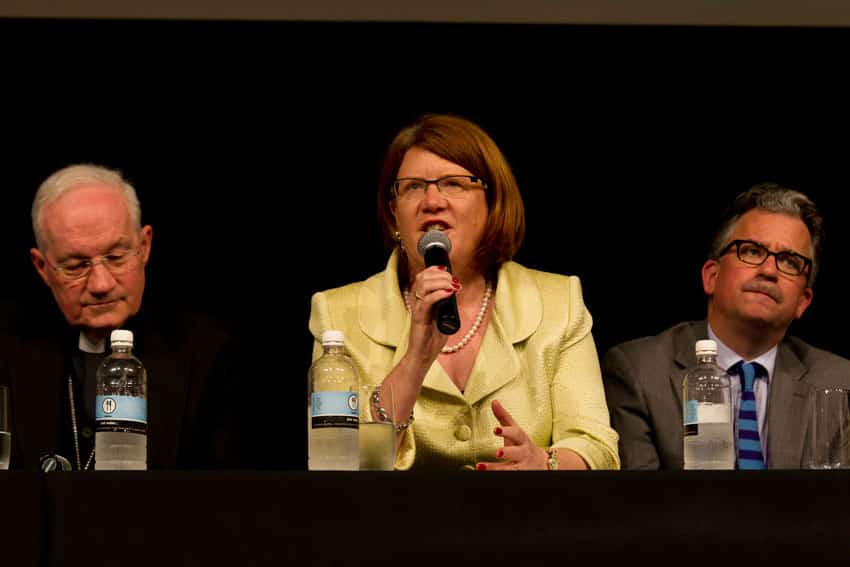
“My number one piece of advice would be not to be naive and enrol just anywhere because university access is close to where [you] live, but really do your homework. Get a hold of the handbooks for the different departments, go onto the internet. If they put the course guides on to the internet and give public access to those course guides then look at it and see what you’d be required to do. So do an enormous amount of background research.”
While Professor Rowland strongly recommended studying at Campion College or Notre Dame, she says, if a student must study the humanities at a secular university there are ways to avoid the worst of the PC content.
“I’d say go for languages… first of all you can’t get into trouble with languages. You either have it right or you have it wrong. Languages give you access to the humanities like nothing else. Having an ability to read at least a couple of European languages, like French, German or Spanish or Italian … it increases your potential to do serious research in the humanities field.”
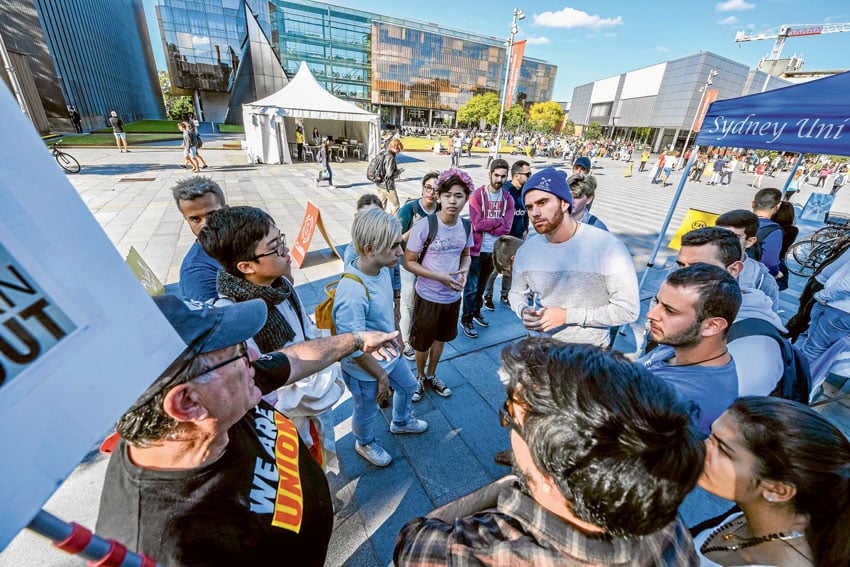
Greg Sheridan, Foreign Editor at The Australian, describes the current state of the humanities in Australian universities as “absolutely hideous”.
“There are very good scholars, there are very good professors, but they’re increasingly in the minority,” Mr Sheridan told The Catholic Weekly.
“The field is dominated by postmodern, Marxist derivative, intellectual approaches that are inherently very foolish and very sterile. They rob the humanities of everything that is beautiful and interesting.”
“One of the best ways to study humanities at university is to do a non-humanities course and read in the humanities widely.”
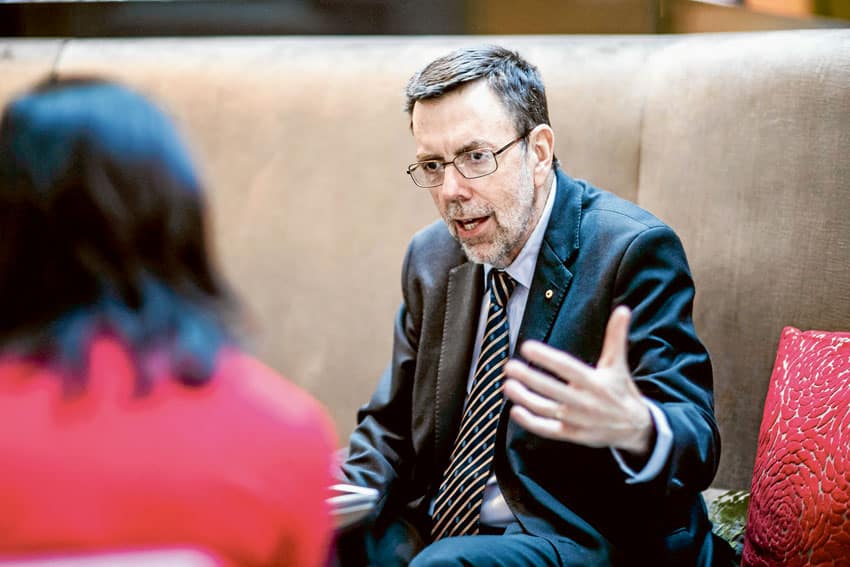
“I think Campion is the best place to go, but I am also encouraged by the growth of Christian colleges and universities which are growing out of the old bible colleges… While their purposes may be primarily religious, they are incidentally also offering people a great education in the classics.”
Dean of the School of Philosophy and Theology at Notre Dame University, Professor Renee Kohler-Ryan has a more optimistic view of Australia’s public universities and says it’s still possible to acquire a good education in the humanities.
“While the press out there is that universities are big, bad and left, that’s not always the case. I think the leftists are getting a lot of bandwidth but that doesn’t necessarily mean that they’re the only ones out there. There’s a lot of really good work being done in Australia in various humanities departments. So just do a bit of research into that. Look at what people are teaching, what they’re writing, look on the conversation, ask around,” she advises.
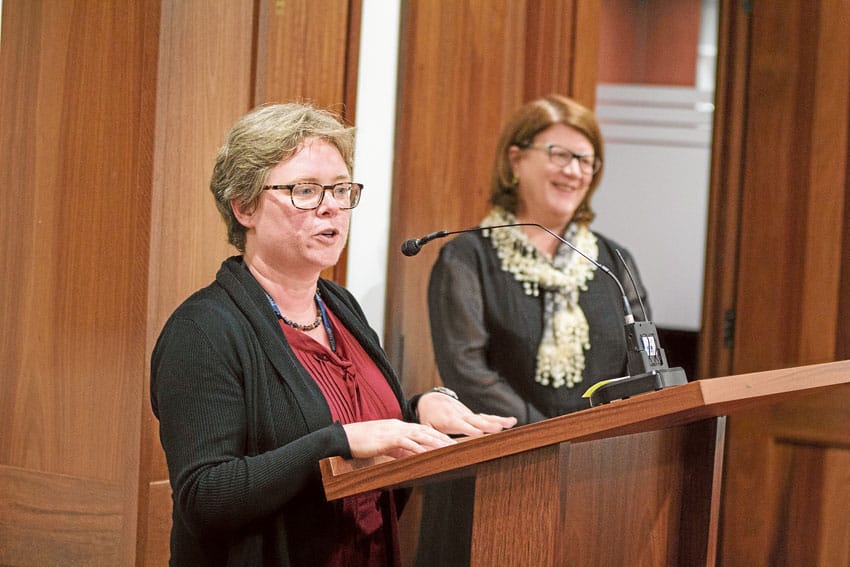
Finding yourself in a course espousing views you disagree with is not necessarily a disaster and may in fact present a valuable opportunity, Professor Kohler-Ryan argues.
“It’s a huge opportunity to actually study in a place where you do not agree with people, so I think that’s one of the most important things that can happen in university education, that you’re actually having to engage with people you disagree with and that will just make you far better at arguing your own position more strongly.
“So without jeopardising one’s own situation, just making sure that whenever you come across something that you disagree with, figure out why you disagree with it, and figure out what all the arguments are – for and against.
“I’ve worked with so many good people in so many universities in Australia and I just know there’s so much good work going on.
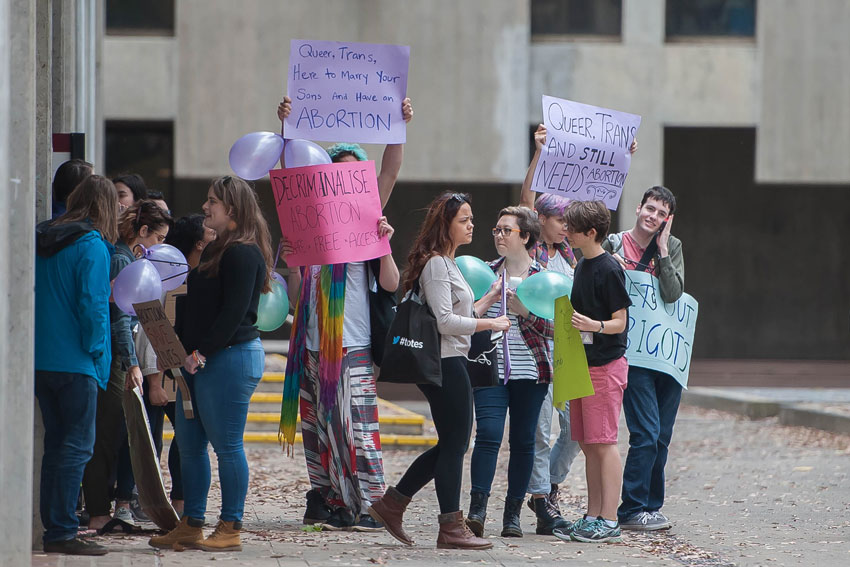
“St John Paul II told us not to be afraid. And I think one of the biggest obstacles to actually addressing what’s going on in society right now will be the temptation to withdraw from the world rather than to help to transform it from within.”
Former Labor leader and heavy-hitting political and social commentator, Mark Latham, argued along similar lines at the Sydney NCC’s fundraising dinner last year, urging young people to not be afraid to change the course of history.
“It’s tough. The purpose of going through university is to get a degree to help get yourself into a good job and a career – and you can imperil that by taking on the status quo,” he told his audience at the Chatswood RSL.
“But every now and then in history some brave person steps forward and does something that changes the course of history for the better. And it is, I think, a time for students to think that way. I don’t blame any student for going with the flow, wanting to get their degree, get out of there and get on with their life. But I also sense there’ll be students who step forward and do the brave things that call out the nonsense, that give greater attention to truth and, honourably, the values of academic inquiry and academic freedom.”
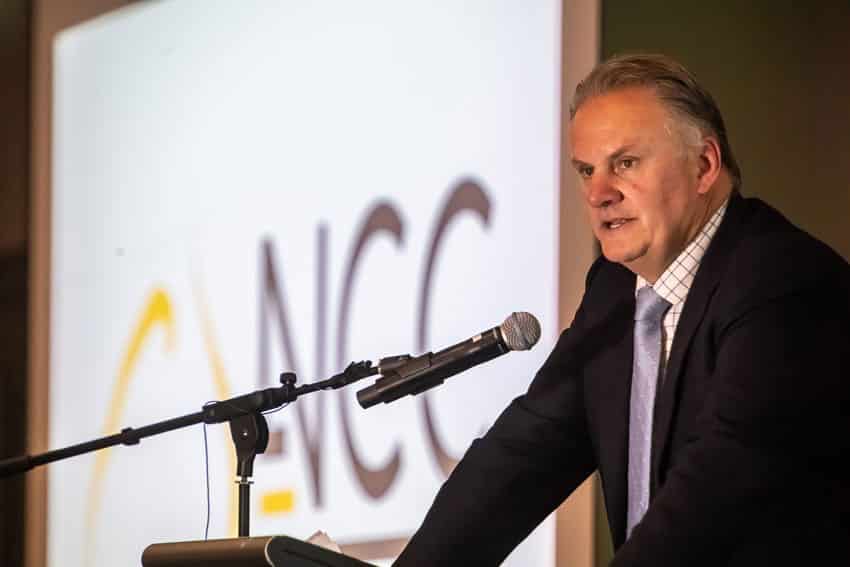
“If you’re a student studying in that environment and you know it’s fake and you know it’s wrong and you know it’s a betrayal of academic truth, there comes a time when if you see that, step forward and call it out,” he urged.
President of Campion College—Australia’s only liberal arts college—Dr Paul Morrissey, said those studying the humanities at secular universities should seek out lecturers and tutors who are not pushing an ideological agenda.
“At all the major universities there are some good members of faculty. If you can befriend them, they will assist and try to find people who can also help.”
Dr Morrissey said many Arts faculties are “infected by identity politics.”
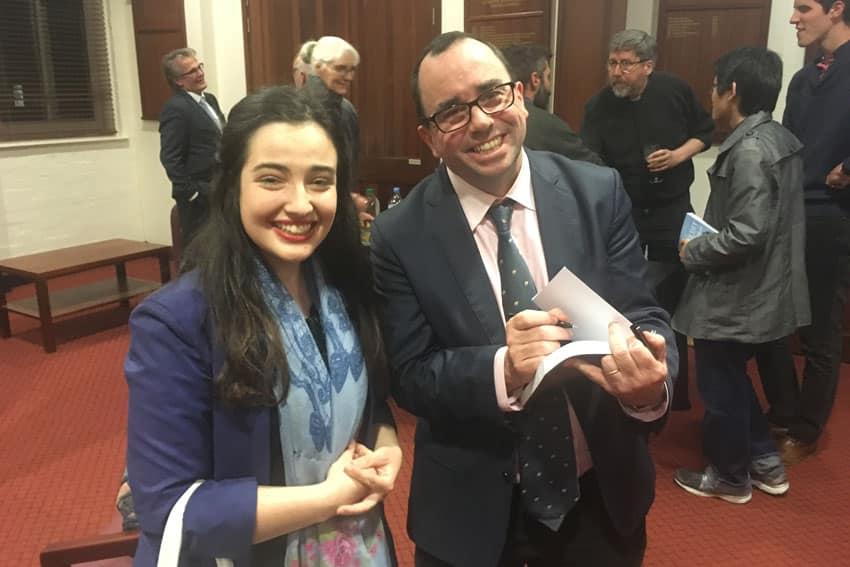
“You could do a degree in History or Literature and really not be exposed to a good solid understanding of the important books or great events without having this lens thrust in front of you this whole time, the identity politics of the Left.”
“Really try to educate yourself and take it on yourself to read good books that aren’t affected by that ideology. Seek out people outside the university who can help in that way.”
“There are some very good books too. A favourite of mine is James V. Schall, the American Jesuit’s book called Another Sort of Learning. It’s just basically a guide to what a liberal education should expose you to. It’s a fantastic book. Books like that can be really helpful.”
At the end of the day, Mr Morrissey says, the best advice he can offer is, “Come to Campion College!”
Dr Bella d’Abrera, Director of the Foundations of Western Civilisation Program at the Institute of Public Affairs, concurs wholeheartedly.
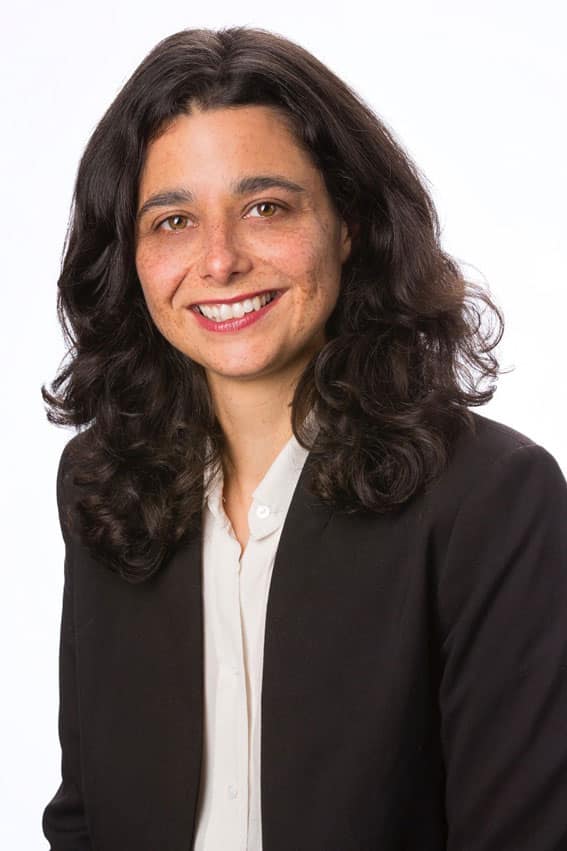
“The obvious place to go at the moment is Campion College if you want a decent three years of a really wonderful, traditional education free from identity politics,” she says. She also recommends the humanities faculty at Notre Dame University.
“Other than that I would recommend that the students look at the handbooks, read the subject courses on offer, and evaluate based on the research interests of the staff and what they’re teaching and you can gain a good understanding of what kind of degree you’re going to get.”
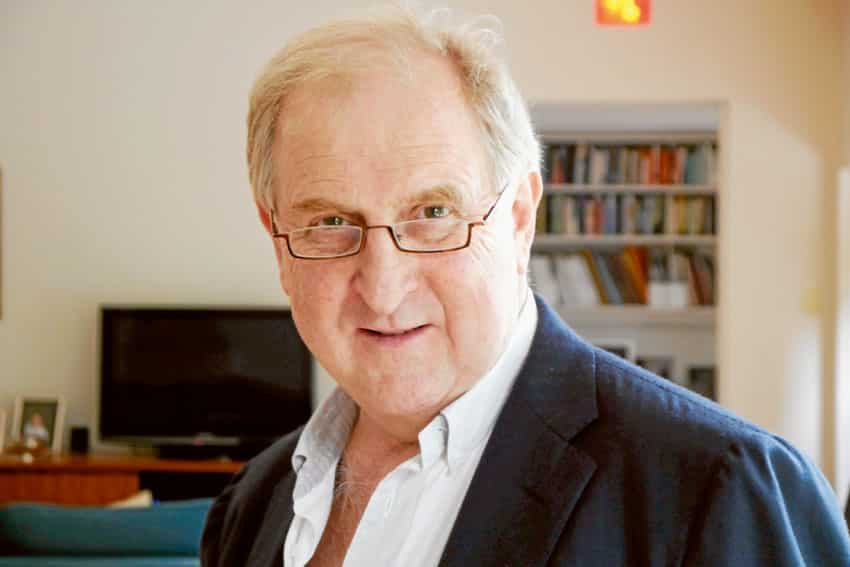
Dr Kevin Donnelly, Senior Research Fellow at Australian Catholic University and Director of the Education Standards Institute, previously told The Catholic Weekly that education has become a “vehicle to overthrow capitalism and take the long march through the institutions to radically re-shape society in terms of radical theory which is Marxist in origin.”
Dr Donnelly advised parents to talk to their kids before they head to university and ensure that they have an awareness of the current situation. “Ensure they have a balanced view. Fore-warned is for-armed.”
Professor Celia Hammond, Vice Chancellor of Notre Dame, says that in any educational endeavour there will always be a risk that certain views or perspectives may outweigh others.
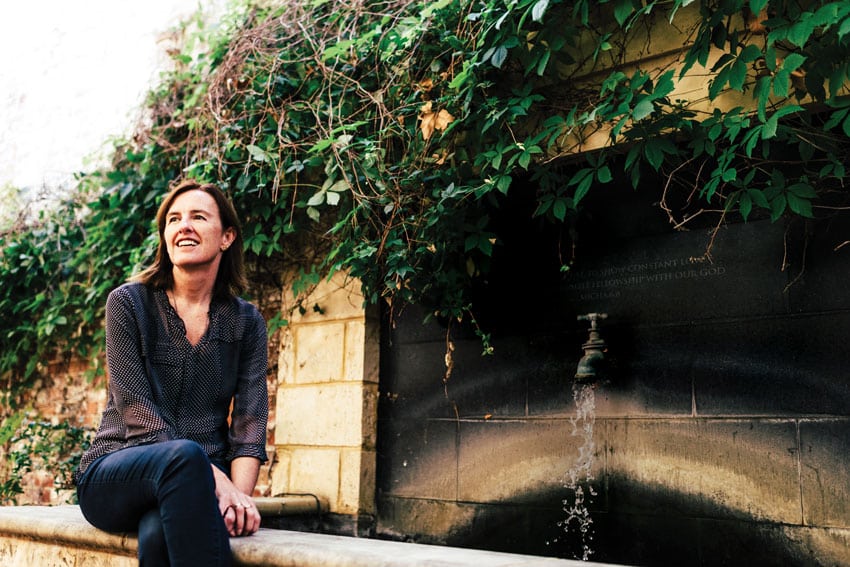
“What I would encourage students to do is to allow themselves to engage with any material they find challenging and to develop their own capacity to investigate, to examine, and to think critically.
“The more they develop intellectual tools such as this, the more they will be able to seek what is true and put forward their own arguments on contentious issues,” she said.
“It’s also important to remember that mastery of any subject only comes from considering a wide range of viewpoints, especially in the early years of study.
“To sum up, follow the advice of St Paul: ‘test everything; hold fast what is good’ (1 Thes 5:21).”
